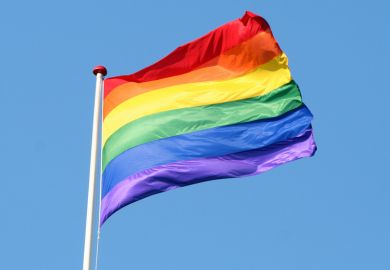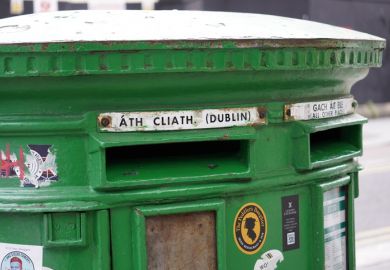I am going to out myself to my law students tomorrow.
I’m teaching a final year module on the regulation of the legal profession, and we’re currently looking at diversity. So far in the lectures, we have run through the various diversity statistics on the profession, looked at diversity reporting rules imposed by the Legal Services Board and looked at academic work on lawyers and gender/ethnicity/class. I made the point to the students a few weeks back that existing academic research into diversity and the legal profession in England and Wales often takes a pocket based approach – people are looking at gender or they look at class – and that there’s little work on many of the characteristics protected by the Equality Act (for example, on lawyers and disability, or lawyers and religion).
Tomorrow, we get to the bit of the lectures that looks at sexuality and the profession. I am going to start – as I did with the lectures on gender, ethnicity and class – with some history on regulation. And then, after the bit where I will talk about the Marriage (Same Sex Couples) Act 2013, I am going to show them a photo from my wedding in 2014.
I am doing this for three main reasons. First, it’s an adorable photo. Second, we have been talking about how different diversity characteristics get treated – here, I really like the phrase that Louise Ashley uses: the “validity of visible difference”. For their seminar in two weeks’ time, I’ve asked the students to look at an example law firm or chambers, and also at the law school staff here at the University of Birmingham, to ask how diverse those groups are. A student asked me, “What elements of diversity are we interested in? How will we know?”
And that’s one of the reasons why I am showing the picture. There’s no reason students would know about my sexuality, or indeed the sexuality of any of my colleagues (although I can hear my husband in the back of my mind quoting this at me from Will & Grace: Jack McFarland: “Grace, did you know I was gay when you met me?” Grace Adler: “My dog knew.”) And I know my Twitter bio says #teamgay. But I think it’s important that I actively out myself. I know other LGBTQI legal academics who feel differently, that who they are in their private lives has no bearing on who they are in their professional lives.
I disagree. I’m not going to go round outing everyone else I know to be LGBTQI, but – and this is my third reason – I feel strongly about being a role model for my students, LGBTQI or otherwise.
As a student, on one vacation scheme one of the associates told me his law firm didn't need any gay lawyers. On another vac scheme, the gay supervising partner I randomly happened to sit with suggested it would be easier if I kept my sexuality private. As a trainee, it was suggested to me (in the nicest possible way, and I know she meant well) that I might want to “tone down” – I accept I had a penchant for relatively brightly coloured ties, but I wasn't doing cartwheels and singing The Sound of Music around the office.
But, generally, being gay and being a solicitor caused me no great issues. In fact, quite the opposite. I co-chaired the LGBT group of my last law firm and we did really well at networking with, and winning business from, our LGBT client contacts.
Academia has felt different and I am not sure why. In fact, I am a tiny bit nervous about tomorrow. I know that I want to show the picture and I know that I think showing the picture is important, but I am still nervous about the reaction. I think part of it goes to the public/private divide – I say to my first year personal tutees when they arrive that being at university isn’t like being at school: we’re all adults and should treat each other like such. But there’s still that “the lecturers aren’t quite people” approach, in that we are (should we be seen outside of the university confines) objects of curiosity. We are authority figures, there to research and to teach, and who we are as people might not matter.
Being different can be hard. It’s hard when you have to declare that difference if you want it recognised. To be clear, I’m not saying life is, for example, any easier for female academics or female lawyers because it is evident to the world that they are women. But I want to be who I am, I am proud of my life (and my husband) and I think students deserve to know that their tutors are a diverse bunch. But I am still oddly nervous. Wish me luck…
Steven Vaughan is senior lecturer at Birmingham Law School and director of education in the Centre for Professional Legal Education and Research. This post was originally published on the blog The Limits of Lawyers.
Register to continue
Why register?
- Registration is free and only takes a moment
- Once registered, you can read 3 articles a month
- Sign up for our newsletter
Subscribe
Or subscribe for unlimited access to:
- Unlimited access to news, views, insights & reviews
- Digital editions
- Digital access to THE’s university and college rankings analysis
Already registered or a current subscriber?







